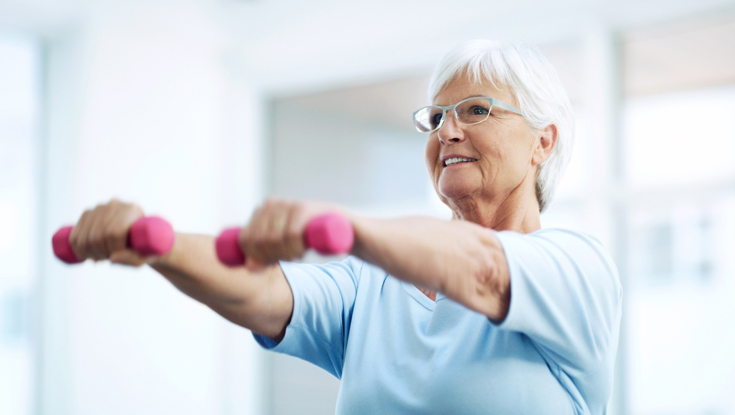
These arthritis tips can help seniors better manage the condition.
Impacting 30 million individuals in the United States alone, osteoarthritis is a debilitating and painful condition that results due to the wearing away of cartilage, causing friction within the joints as unprotected bones rub against each other. While it can happen in virtually any joint, it is most prevalent in the hands, hips, knees, lower back, and neck.
Given that it’s so common, it is essential for all of us to know the fundamentals of osteoarthritis and what you should do in the event that you or a senior you love is diagnosed. The following arthritis tips can help.
- What is the cause of osteoarthritis? Although an exact cause is unknown, it frequently strikes the elderly and those whose bodies are unable to repair joint tissue.
- Am I at an increased risk? There are various risk factors:
- Genetics
- Age (most common in those over age 40)
- Trauma or overuse of a joint
- Obesity
- Gender (more widespread in females than males)
- Occupation (those performing repetitive tasks)
- Certain health conditions (particularly other forms of arthritis, joint or cartilage abnormalities, misalignment associated with ankle, knee, or hip, bone diseases)
- What are the symptoms? At the start, there may be no apparent symptoms, but as osteoarthritis advances, signs can include stiffness, swelling, and pain that is worse when the joint has been at rest for a period of time, along with soreness, warmth, and trouble moving the joint, and/or a cracking sound once the joint is moved.
- How will a doctor diagnose osteoarthritis? The physician’s examination will incorporate tests to rule out other potential causes for the pain and swelling inherent in osteoarthritis, including x-rays, MRIs, blood and joint fluid tests.
- What treatments are available? Even though there’s no cure or treatment to undo the damage resulting from osteoarthritis, symptoms may be alleviated through pain medications, physical therapy and exercise, lifestyle changes, assistive devices, and/or surgery.
- Can supplements help? Although some studies have suggested that those without sufficient intake of vitamins C, D and K may have an increased risk of being diagnosed with osteoarthritis, the American College of Rheumatology has concluded that using supplements of these vitamins, along with calcium and omega-3 fatty acids, has not been proven to be safe or effective. It’s extremely important to always check with your medical professional before you take any supplements.
Live Free Home Health Care, the Holderness home care experts, can help seniors with osteoarthritis in many ways, including:
- Assistance with light housework and laundry, as well as other responsibilities which could be challenging or result in pain
- Planning and preparing healthy, nutritious meals
- Providing motivation and encouragement to participate in doctor-advised exercises
- Supplying transportation and accompaniment to medical appointments and procedures
- Picking up prescriptions, grocery shopping, and running other errands
- And many others
Contact us at 603-217-0149 for more helpful resources related to osteoarthritis as well as other conditions typical to aging, and to ask about a free in-home consultation for additional details on how our professional, fully trained and knowledgeable care staff can enhance wellbeing for the older adults you love.
